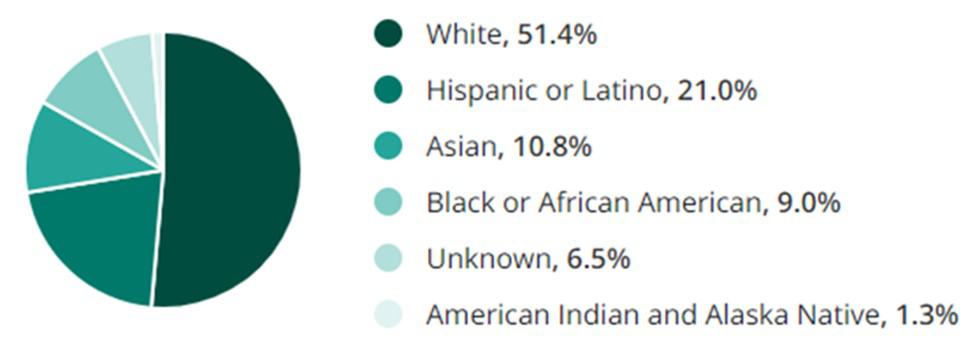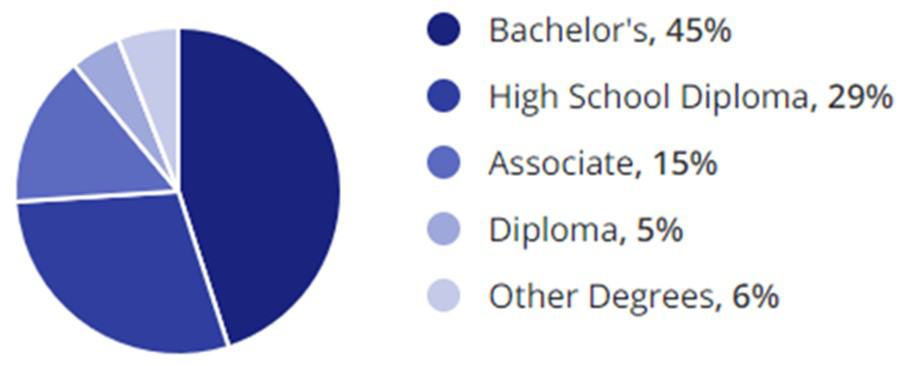Welcome to the ultimate guide for aspiring professionals seeking opportunities in the hospitality-hotel industry. This dynamic and rewarding field offers more than just a job; it provides the chance to make a genuine difference in people’s lives, creating memorable experiences for guests from around the globe. Whether you’re drawn to the allure of luxurious resorts, the bustle of city hotels, or the charm of boutique inns, this guide is designed to navigate the essentials—from educational pathways and skill sets to industry trends and job outlook.
Together, we’ll explore how diversity and inclusivity play pivotal roles in enriching the hospitality experience for everyone involved. Join us on this journey to discover how you can launch or advance your career in this vibrant industry, making every stay unforgettable for your guests and turning your professional dreams into reality.
Educational Requirements
Starting a career in hospitality-hotel jobs often requires a blend of formal education and hands-on experience. For those interested in pursuing this path, here are critical educational steps to consider:
- Hospitality Management Degree: Many professionals begin with a degree in hospitality management. These programs cover essential industry topics such as operations, customer service, and business strategies, preparing graduates for hospitality-hotel jobs.
- Business Administration Courses: Given the business-centric nature of hotels, courses in business administration can be incredibly beneficial. They offer insights into management, accounting, and marketing, which are crucial for a successful hospitality career.
- Specialized Certifications: Stand out by obtaining certifications in specific areas like food and beverage management, hotel operations, or event planning. These can significantly enhance your qualifications, especially for hotel housekeeping or front desk jobs.
- Internships and Work Experience: Hands-on experience is invaluable. Internships or part-time positions in hotels or related settings provide practical skills and a deeper understanding of the industry’s dynamics.
Explore educational resources and career guidance to assist further those looking to enter or ascend within the hospitality realm.
Areas of Expertise
In the hospitality-hotel sector, various areas of expertise can pave the way for a fulfilling career. Each location offers unique opportunities and challenges, making the industry diverse and dynamic. Here’s a closer look at some key areas:
- Event Management: This specialization focuses on planning and executing various events, from business conferences to weddings. Professionals in this field need strong organizational and communication skills.
- Lodging Management: It oversees the daily operations of lodging facilities like hotels and resorts. Here, customer service, operations, and financial management expertise are crucial.
- Food and Beverage Management: This area deals with managing restaurants and food service operations within hotels, requiring knowledge of food safety, menu planning, and customer service excellence.
- Travel and Tourism: Specialists in this field work on broader hospitality aspects that cater to travelers, including tour operations and travel agency management. Understanding the latest travel trends is critical.
Understanding the available positions is essential for individuals considering a career in these areas. Whether it’s a role in hotel housekeeping or a position at the hotel front desk, each job plays a vital part in the guest experience. Developing expertise in these areas enhances your employability and opens doors to various growth opportunities within the hospitality sector.
Demographics in the United States
Ethnicity/Race:
The hospitality-hotel sector in the U.S. showcases a vibrant tapestry of ethnic and racial diversity, underscoring the industry’s inclusive nature. The workforce split is estimated as follows:
- White: 51.4%
- Hispanic or Latino: 21%
- Asian: 10.8%
- Black or African American: 9%
- Unknown: 6.5%
- Native American and Alaska Native: 1.3%
This diversity is a testament to the welcoming embrace of the hospitality industry, reflecting the vast array of guests it serves daily.

Gender:
In terms of gender distribution, the hospitality-hotel sector is relatively balanced yet shows a lean toward female representation:
- Female: 63.5%
- Male: 36.5%
This balance indicates the sector’s ongoing efforts to provide equal opportunities and foster a supportive environment for all genders.

Age:
The hospitality-hotel industry appeals to a broad spectrum of age groups, with the estimated average age being 34 years. This dynamic industry attracts:
- Young professionals bringing fresh perspectives and innovative customer service approaches.
- Seasoned experts, contributing decades of operational wisdom and mentorship capabilities.
Such diversity in age enriches the workplace, blending traditional hospitality values with modern, innovative ideas.

Salary Trends
In hospitality-hotel jobs, salary ranges can vary widely based on factors such as role, location, and the hotel’s or resort’s prestige. Understanding these trends is critical for professionals at all stages of their careers. Here’s a snapshot of the current salary landscape:
- Entry-Level Positions: For those just starting in hotel receptionist jobs or other front desk roles, salaries can start around $30,000 per year.
- Mid-Level Roles: Positions with more responsibility, such as food and beverage managers or event coordinators, often see salaries ranging from $40,000 to $60,000.
- Senior Management: For high-level roles, including general managers or executive roles in luxury properties, salaries can soar above $120,000, reflecting the extensive experience and expertise required.
It’s essential for job seekers and professionals considering a career move to stay informed about these trends. Salaries are influenced by the evolving nature of the hospitality industry, with factors like technology advancements, guest experience expectations, and economic shifts playing a significant role.
Hiring Trends
The hospitality-hotel sector is experiencing a wave of change, influenced by global travel patterns, guest expectations, and technological advancements. These shifts are shaping current and future hiring trends, creating new opportunities and demands within the industry. Here are key trends to watch:
- Emphasis on Technology: Technology integration into hospitality services is on the rise. This trend creates a demand for professionals skilled in hotel management software, online booking platforms, and digital guest services.
- Focus on Guest Experience: Hotels are increasingly prioritizing personalized guest experiences. Professionals who can innovate in customer service, create memorable stays, and manage feedback effectively are in high demand.
- Sustainability Practices: As travelers become more eco-conscious, hotels seek individuals knowledgeable in sustainable practices and green technologies.
- Remote Work Influence: The growth of remote work has increased the demand for flexible and remote hotel jobs. This includes roles that can support hospitality services from a distance.
Staying informed about these hiring trends is crucial for job seekers and those looking to advance within the hospitality sector. As the industry evolves, so do the skill sets and experiences employers value. For further exploration into how these trends impact job opportunities, resources like remote jobs working tips can offer additional insights, particularly for professionals interested in adapting to the changing landscape of hospitality employment.
Education Levels
The hospitality and hotel industry values diverse educational backgrounds, reflecting the various roles and responsibilities. While many positions offer on-the-job training, formal education can be a significant advantage, particularly for career advancement. Here are the expected education levels found in the sector:
- High School Diploma or GED: Many entry-level roles, such as hotel housekeeping jobs, require a high school diploma or equivalent. These positions offer foundational experiences in the hospitality field.
- Associate Degree: An associate degree in hospitality management or a related field can open doors to supervisory roles within various departments, from guest services to food and beverage operations.
- Bachelor’s Degree: A more in-depth understanding of the industry can be gained through a bachelor’s degree. Graduates often qualify for mid-level and some managerial positions, like hotel front desk managers or event coordinators.
- Master’s Degree or MBA: For those aiming for senior management or executive-level positions, a master’s degree or MBA focusing on hospitality management provides the strategic and leadership skills necessary to succeed at the highest levels.
Regardless of the starting point, a commitment to ongoing education and skills development is critical in this dynamic industry. Opportunities for professional growth are abundant, with many employers offering training programs and support for further education. Equipping yourself with the appropriate education and leveraging resources designed to aid career development, such as tips and strategies in educational insight articles, can significantly bolster one’s career trajectory within the hospitality and hotel sector.

Skills in Demand
The hospitality-hotel sector is not just about providing accommodation but creating memorable guest experiences. This objective places a premium on specific skills currently in high demand across the industry. Here are the most sought-after skills:
- Customer Service Excellence: The ability to engage with guests warmly, handle their requests efficiently, and resolve any issues promptly is paramount. Exceptional customer service creates loyal customers.
- Operational Management: For those in management roles, operational skills—including overseeing staff, managing budgets, and ensuring smooth daily operations—are essential.
- Digital Proficiency: In today’s digital age, being adept at using hotel management software, social media, and online booking systems is highly valued.
- Team Leadership: Leading a team effectively, fostering a supportive and productive work environment, and motivating staff to achieve high service standards are essential leadership qualities.
- Flexibility and Adaptability: The ability to adapt to change, whether dealing with unexpected guest requests or navigating industry shifts, is valuable in the dynamic hospitality environment.
Employers are looking for individuals who possess these skills and are committed to continually developing their expertise. As the industry evolves, staying ahead of the curve by upgrading your skill set can enhance your career prospects significantly. Engaging with resources offering career advice and professional growth strategies can immensely benefit those seeking to develop these skills.
Current & Future Hospitality-Hotel Jobs Outlook
The hospitality-hotel industry is on a path of rapid evolution, shaped by emerging trends in travel, technology, and guest expectations. As a result, the outlook for hospitality-hotel jobs remains positive, with several key factors influencing current and future opportunities:
- Growth in Travel: Increasing global travel, both for business and leisure, drives demand for hotel services and, by extension, for skilled hospitality professionals.
- Technology Integration: Integrating technology into the guest experience, from mobile check-ins to personalized room settings, creates new roles focused on tech-driven services.
- Sustainability Initiatives: Growing interest in eco-friendly travel pushes hotels to adopt sustainable practices, opening opportunities for professionals with expertise in green technologies and sustainable management.
- Experience Economy: As guests increasingly seek unique and memorable experiences, hotels offer more than just accommodation. This trend fosters job creation in event planning, culinary arts, and wellness services.
The hospitality-hotel sector is poised for continued growth. Professionals who can adapt to industry shifts, embrace technological advances, and prioritize sustainability and guest satisfaction will find numerous opportunities to advance their careers. For those considering a future in this dynamic field, now is an exciting time to explore the range of available roles and develop the skills and expertise needed to thrive.
FAQ’s
What qualifications do I need to start a career in hospitality-hotel jobs?
While entry-level roles may only require a high school diploma or equivalent, advancing in the hospitality-hotel sector often necessitates a degree in hospitality management or a related field, alongside relevant certifications and experience.
Can I pursue a hospitality hotel career with a remote job?
Yes, the industry is adapting to the remote work trend, offering opportunities in customer service, digital marketing, and reservations that can be performed remotely.
What is the average salary in the hospitality hotel industry?
Salaries vary widely depending on the role, location, and type of establishment. Entry-level positions may start around $30,000, while senior management roles can exceed $120,000 annually.
How can I advance my career in the hospitality-hotel sector?
Advancing in this field involves gaining experience and pursuing higher education or certifications. As well as developing in-demand skills such as customer service, operational management, and digital proficiency.
Is the hospitality-hotel industry a good choice for a long-term career?
Absolutely. With its wide range of roles, ongoing growth, and evolving guest expectations, the hospitality-hotel sector offers dynamic career paths and continuous personal and professional development opportunities.
Additional Resources
Embarking on a career in the hospitality-hotel industry or aiming to advance in this field requires access to quality resources. Here are some valuable resources from reputable sources to assist you in your journey:
- The American Hotel & Lodging Educational Institute offers a range of certifications and training programs designed for hospitality professionals at all stages of their careers.
- The International Council on Hotel, Restaurant, and Institutional Education (ICHRIE) provides research, publications, and networking opportunities for educators, industry professionals, and students.
- The U.S. Small Business Administration is a valuable resource for entrepreneurs interested in starting their own lodging establishments or hospitality businesses, offering guidance on plans, financing, and growth strategies.
- For those interested in the academic and research side of hospitality, the Google Scholar platform can be valuable for finding scholarly articles and studies on a wide range of hospitality-related topics.
- Prospective students can explore hospitality management programs and courses through the U.S. Department of Education, which provides information on accredited institutions and financial aid options.
Conclusion
The hospitality-hotel industry presents a vibrant landscape of opportunities for those passionate about service, travel, and creating unforgettable guest experiences. With the proper diversity job boards, education, skills, and continuous learning, ambitious professionals can build rewarding careers across various roles. As the industry evolves, staying informed about the latest trends, advancements, and resources is critical to success. We invite you to join Diversity Employment, a platform where diversity meets opportunity. You can upload your resume, explore job listings, and access valuable resources to propel your career forward here. Let’s shape a more inclusive and innovative future in the hospitality-hotel sector.




